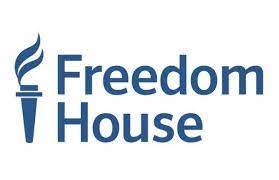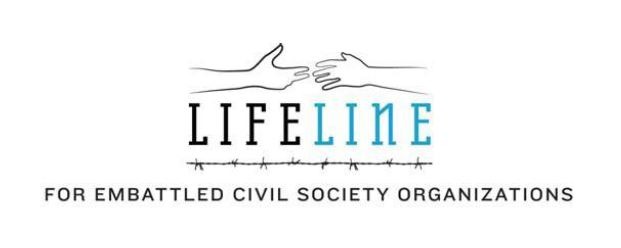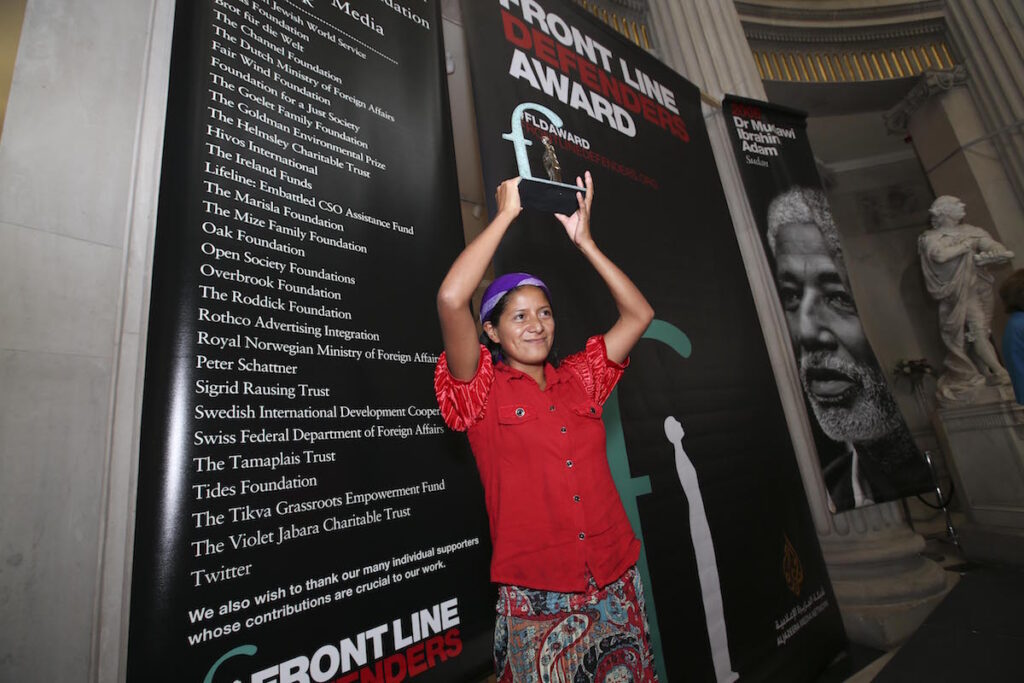The International Women's Media Fund
The fund aims to support journalist’s and journalistic opportunities led by women and non-binary people. The amount of the grant depends on the project. Applications may take up to 8 week to process.

Rory Beck Trust
The Crisis Fund was created to help with a financial crisis happening as the direct result of a journalist’s work; for example, if they experience physical attacks, have urgent medical or equipment replacement costs to cover or are forced to relocate. The fund may also provide assistance to a freelancer’s family following an injury, imprisonment, kidnapping or death of the journalist while doing their work.
The aim is to provide support to freelance journalists so they are able to resume their important work.

Free Press Unlimited
Reporters Respond is an international emergency fund that provides direct assistance to journalists and media outlets in distress, enabling them to resume work as quickly as possible when faced with a crisis situation. Free Press Unlimited offers support to media professionals in distress with emergency assistance, legal support, and safety advice through Reporters Respond
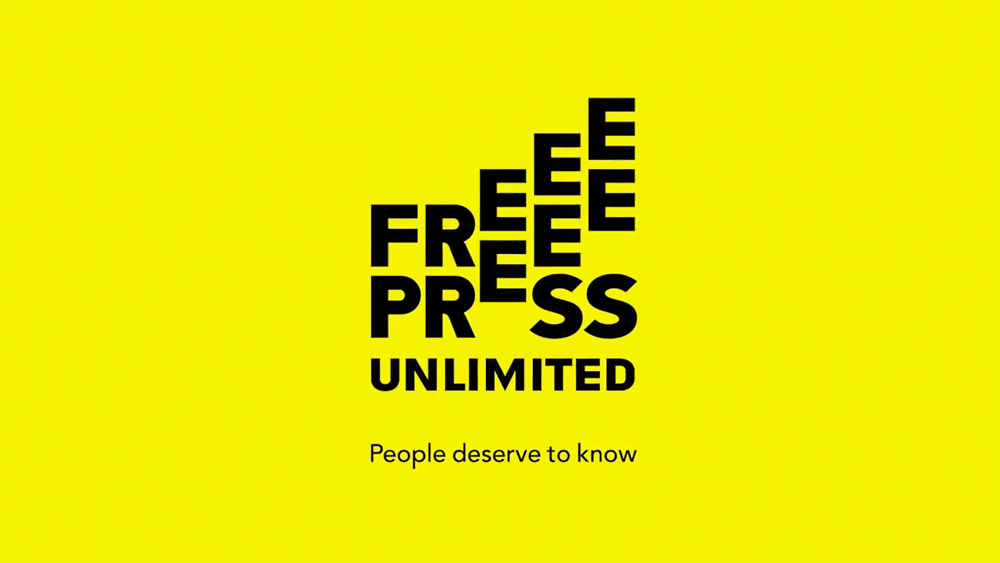
International Media Support
The Safety Fund provides immediate support for journalists who are victimised as a direct result of their journalistic work. Support is given only in the short-term, and no longer than 6 months, covering the immediate needs of the individual or his/her close relatives. The Safety Fund cannot be used as humanitarian support to journalists in cases where individuals are affected by natural disasters.
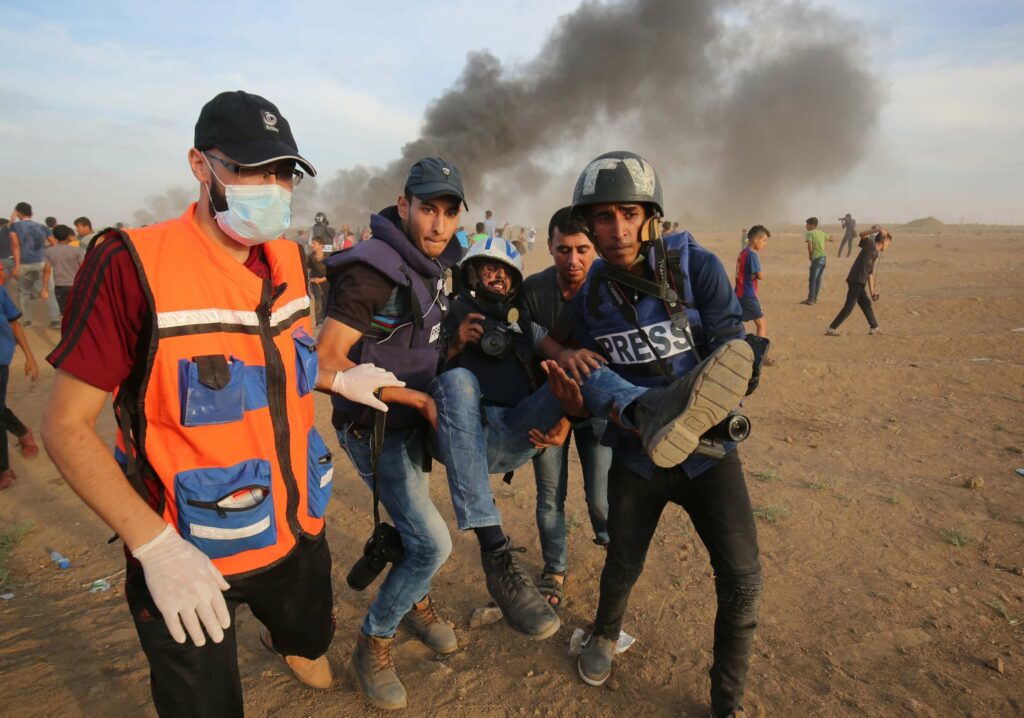
Reporters Without Borders
The Assistance Desk of Reporters Without Borders (RSF) provides financial and administrative assistance to professional journalists and citizen-journalists who have been the victims of reprisals because of their reporting.
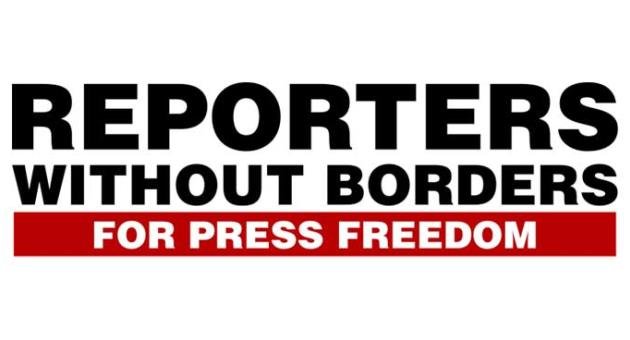
International Federation of Journalists
The Safety Fund offers financial assistance in a range of emergency cases such as threats, violence and threats thereof, prosecution, settlement in exile and illness.
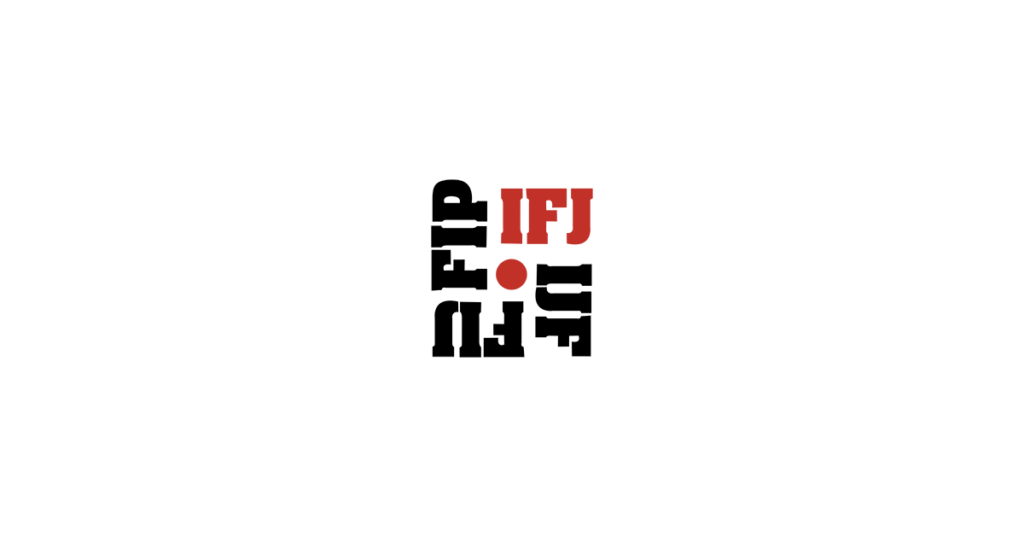
Agir Ensemble pour les Droits Humans
The Emergency Fund has a mandate to provide financial assistance adapted to the needs of human rights defenders in danger and ensure regular monitoring of the situation of each of them.
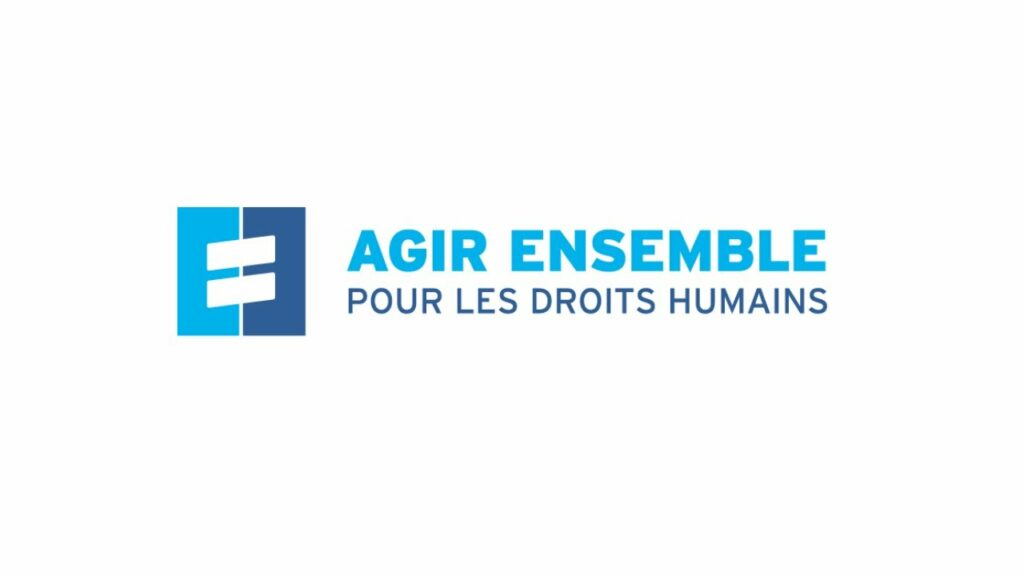
Freedom House via Lifeline
The Lifeline Embattled CSO Assistance Fund provides emergency financial assistance to civil society organizations (CSOs) under threat or attack and rapid response advocacy and resiliency grants to support CSOs in responding to broader threats against civic space. Lifeline supports a variety of human rights CSOs, including human rights organizations, journalist associations, student groups, labor unions, think tanks, and others.
ProtectDefenders.eu
The emergency grants programme ensures that human rights defenders can access and implement urgent security measures to protect themselves, their family, and their work. Emergency grants aim to reach every corner of the world, including most difficult countries and remote locations, as well as those within the most vulnerable and targeted groups.
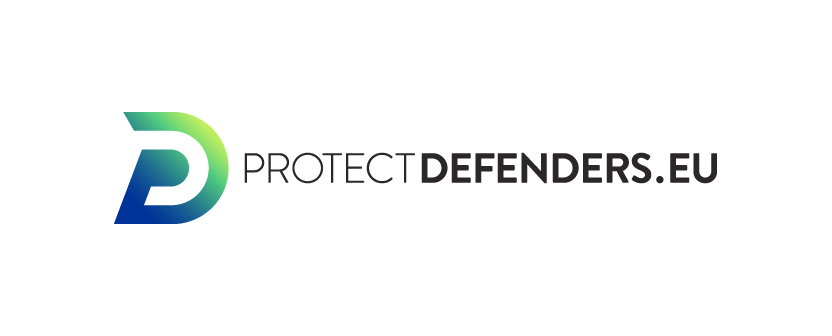
CIVICUS Alliance
The Crisis Response Fund helps to defend civic freedoms and democratic values. It presents a way to mobilise quick, principled and effective advocacy responses to events that threaten fundamental rights to associate and assemble freely. The fund also supports civil society through resiliency grants, designed to ensure that organisations have greater flexibility and creativity to proactively prevent and mitigate threats against their organisations.
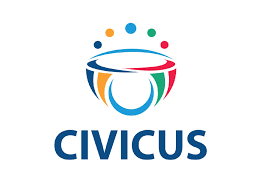
World Organisation Against Torture
This protection grant aims to support human rights defenders in/from the East and Horn of Africa and in need of emergency assistance.
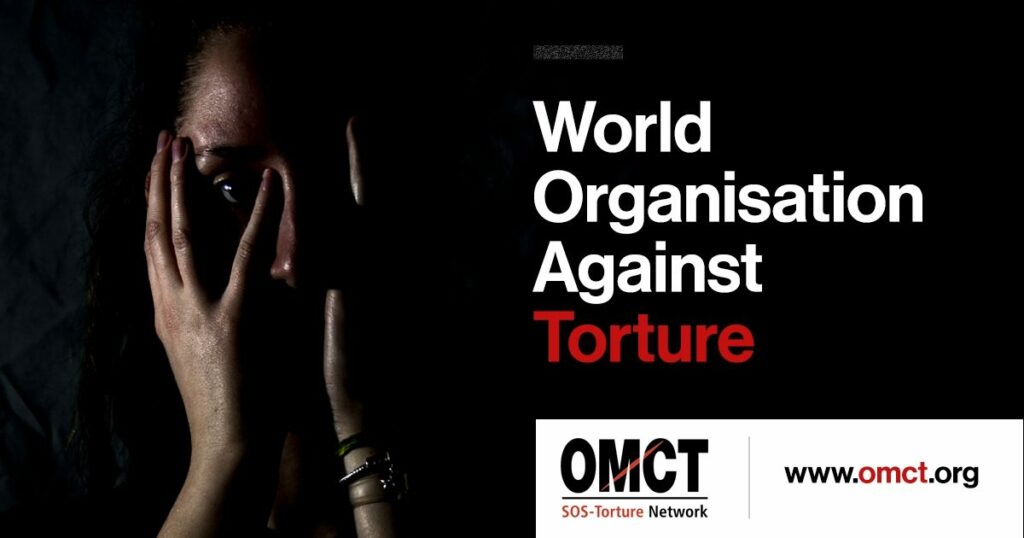
International Federation for Human Rights
This emergency grant provides emergency material support to at risk human rights defenders working in the most difficult circumstances. Costs eligible for financial support or direct material support include the following: physical security, digital security, communications, capacity building in security, secure transportation, legal support, medical support (including psycho-social support and rehabilitation), humanitarian assistance (including family support), urgent relocation, urgent monitoring, reporting or advocacy).
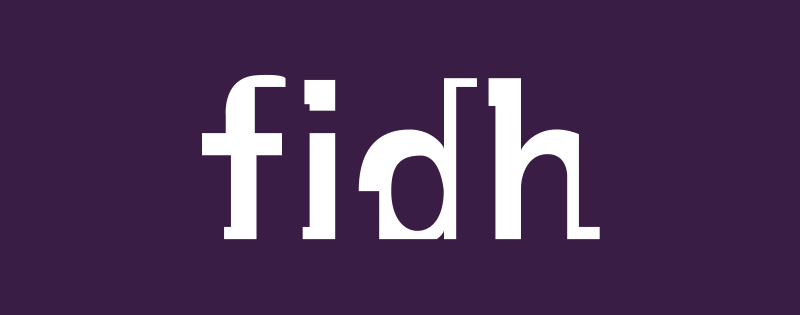
Euro-Mediterranean Foundation of Support to Human Rights Defenders
Emergency funding for threats against applicants’ lives and/or those of members of their family and reinforce the visibility and pursuit of their activities at a strategic timing.
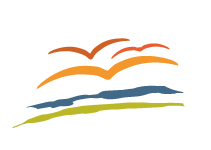
Frontline Defenders
Protection Grants are meant to contribute towards the improvement of security and protection for human rights defenders and their organisations – ranging from improving physicial and digital security to paying for medical and legal fees for HRDs who have been judicially harrassed or have suffered from a medical condition as a result of their peaceful human rights activities.

Hivos - via Digital Defenders Partnership
The IEF aims at aiding in urgent cases of digital threats or attacks against HRDs, journalists, activists or organisations. It covers costs related to digital equipment replacement, as well as measures meant to address the physical security and psychological well-being.
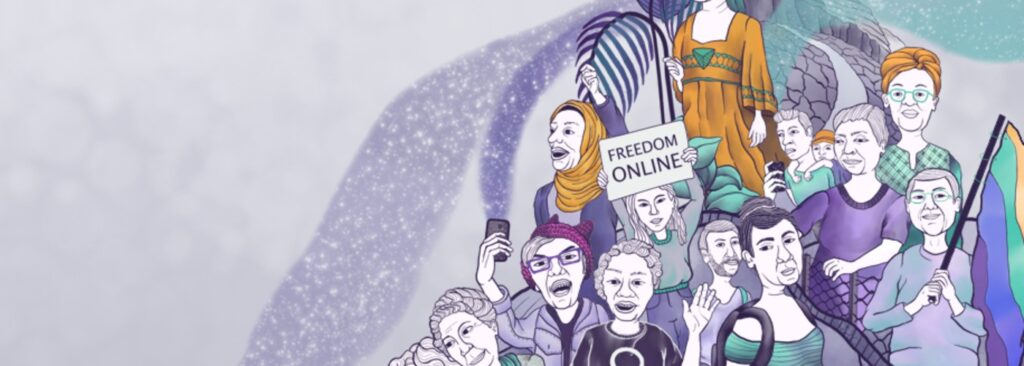
ProtectDefenders.eu
ProtectDefenders.eu allocates grants for Human Rights Defenders at risk to temporary relocate within their country or abroad, in case of threat, in partnership with host entities worldwide. If needed, families of human rights defenders are also eligible for support and relocation. During the relocation period, defenders are able to rest, seek rehabilitation, build their capacities through training, expand their international network of contacts, pursue their human rights work from a secure location and prepare their safe return.
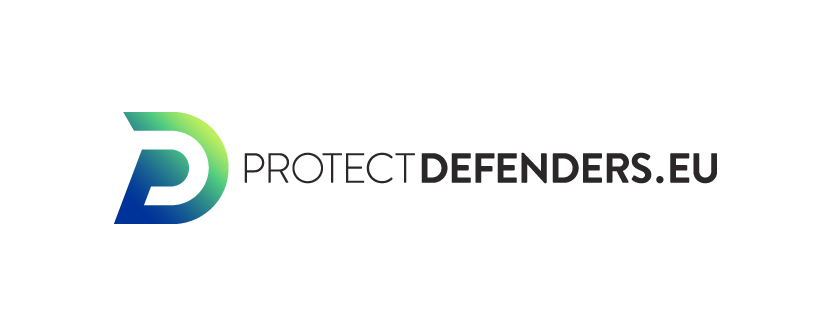
International Women's Media Foundation
The IWMF Emergency Fund provides women-identifying journalists with small grants for psychological and medical care; three months of temporary relocation assistance in the event of crisis or threat; legal aid to counter threats of imprisonment or censorship; or non-financial assistance in the form of information about additional access to resources.
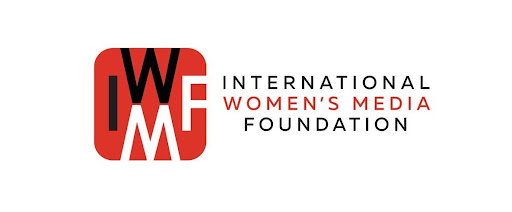
Reporters Without Borders
The Assistance Desk of Reporters Without Borders (RSF) provides financial and administrative assistance to professional journalists and citizen-journalists who have been the victims of reprisals because of their reporting.

DefendDefenders
For more information, contact: Tel. No. +256 783 027611.
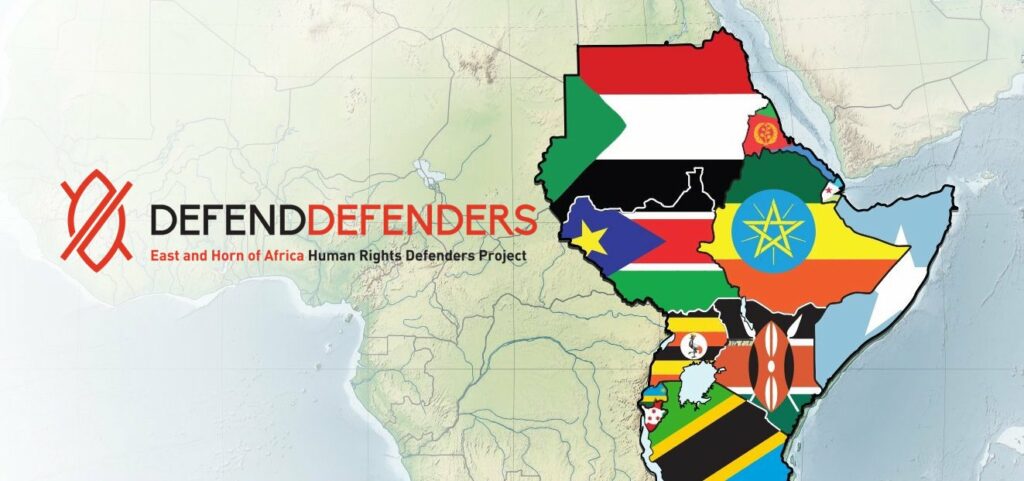
ProtectDefenders.eu
Defenders facing immediate risk can contact ProtectDefenders.eu through the 24/7 emergency helpline, run by Front Line Defenders.
For more information, contact: Tel. No. +353 (0) 1 21 00 489.
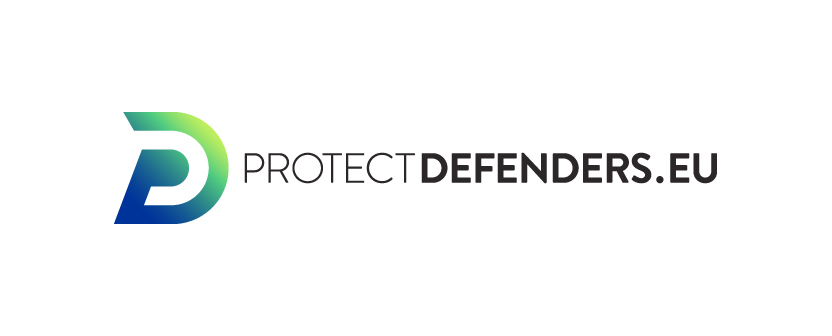
Digital Freedom Fund
The Digital Freedom Fund supports strategic litigation to advance digital rights in Europe. DFF provides financial support and seeks to catalyse collaboration between digital rights activists to enable people to exercise their human rights in digital and networked spaces.
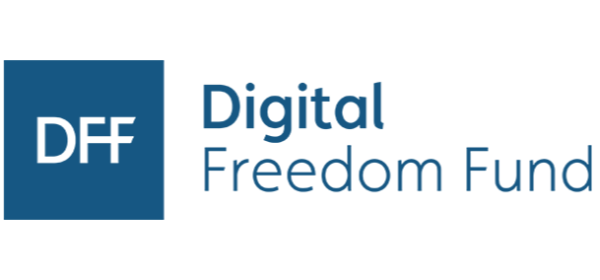
Access Now
Access Now provides flexible and grantee-driven funding to grassroots and frontline organizations fighting for human rights in the digital age.
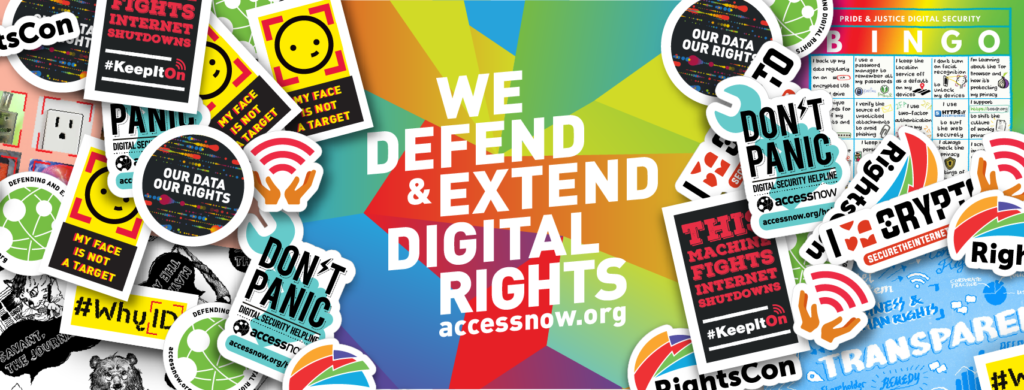
Hivos - via Digital Defenders Partnership
The IEF aims at aiding in urgent cases of digital threats or attacks against HRDs, journalists, activists or organisations. It covers costs related to digital equipment replacement, as well as measures meant to address the physical security and psychological well-being.
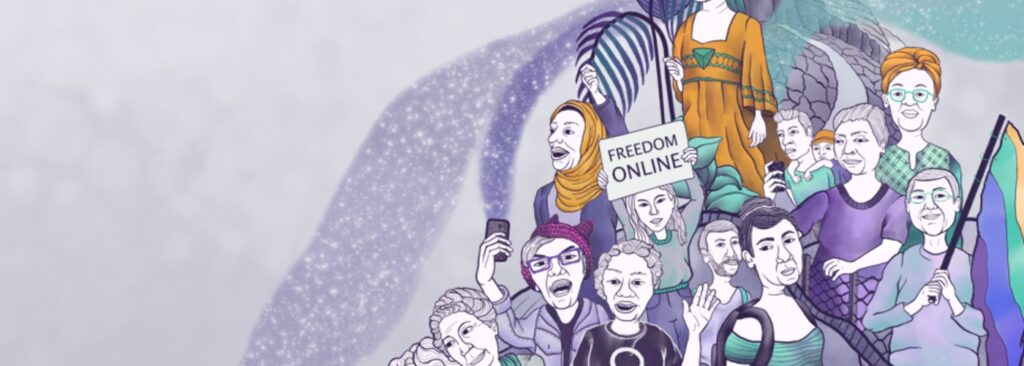
Frontline Defenders
Protection Grants are meant to contribute towards the improvement of security and protection for human rights defenders and their organizations – ranging from improving physical and digital security to paying for medical and legal fees for HRDs who have been judicially harassed or have suffered from a medical condition as a result of their peaceful human rights activities.

Open Technology Fund
To resolve digital emergencies, OTF offers both direct financial support as well as technical services from trusted partners to high-risk people and organizations, such as bloggers, cyber activists, journalists, and human rights defenders.
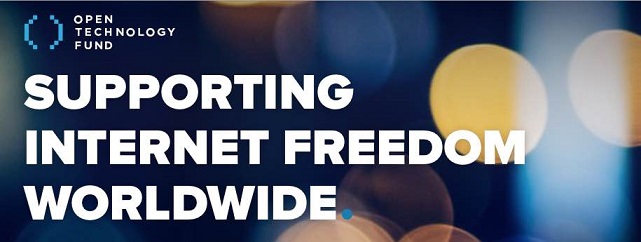
Global Investigative Journalism Network
Global Investigative Journalism Network has created, with the help of experts and journalists, a comprehensive guide on documenting war crimes. The guide focuses on legal aspects of war, environmental crimes, attacks on civilians, genocide, archiving evidence, documentation, physical and digital security best practicies, self-care, and more.
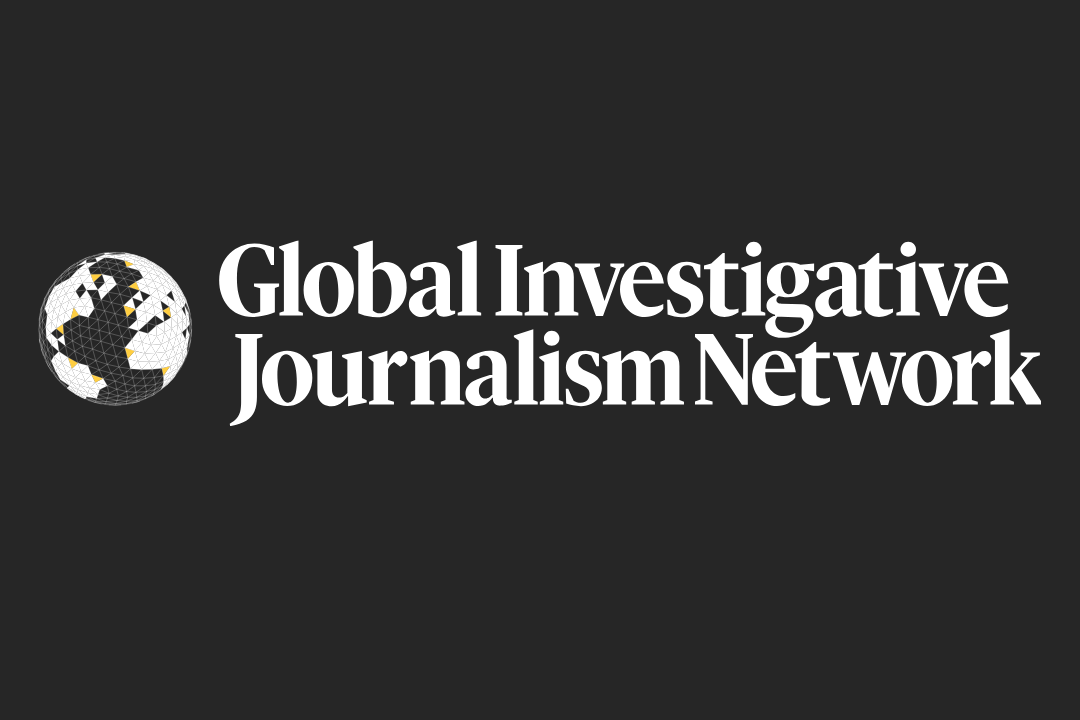
The toolkit, by CSOLifeline, is a practical resource that emphasizes that advocacy is possible even in restrictive contexts. The toolkit places the planning process within the context of risk assessment and mitigation, which is essential in these environments.

Horizontal
Shira.app is a interactive tool that allows you to practice identifying and defeating phishing attempts. It is an important tool as phishing can infringe on your personal data and privacy.
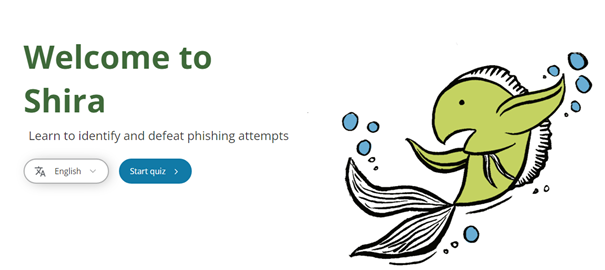
Data & Society
This document is a set of best practices for researchers—especially junior researchers—who wish to engage in research that may make the researcher susceptible to online harassment.

Access Now
The 10th anniversary of RightsCon gathered business leaders, human rights defenders, government representatives, technologists, and journalists from around the world to tackle the most pressing issues at the intersection of human rights and technology. This year’s RightsCon included topics on democracy, transparency, and censorship.
Access Now
In this website you will find guides used at Access Now Digital Security Helpline to handle different kinds of cases during our 24/7 operations. If you run a digital security helpdesk or are just advising your friends about how to secure their online activities or respond to a digital security incident, you can find some useful tips and procedures in these guides.
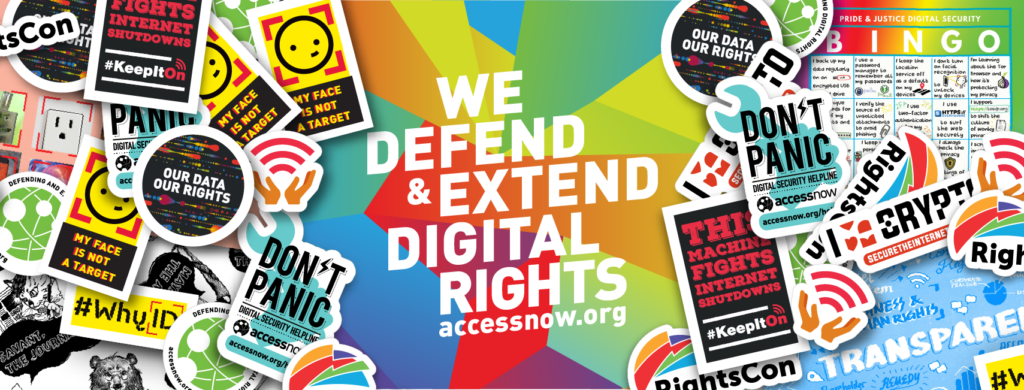
Hivos - Digital Defenders Partnership
The Digital First Aid Kit aims to provide preliminary support for people facing the most common types of digital threats. The Kit offers a set of self-diagnostic tools for human rights defenders, bloggers, activists and journalists facing attacks themselves, as well as providing guidelines for digital first responders to assist a person under threat.
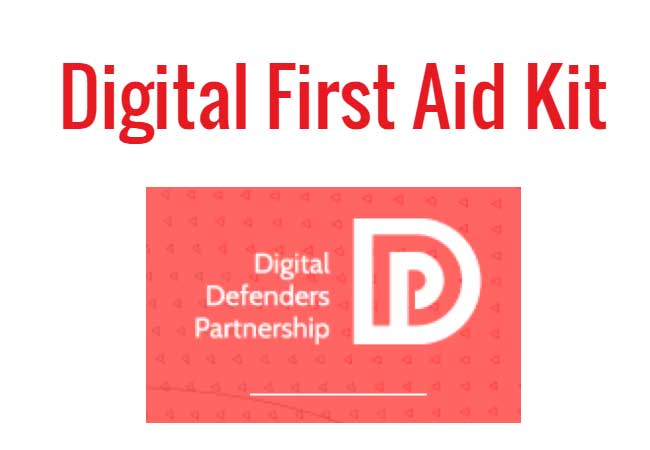
Frontline Defenders
This book is an introduction to the ever growing and complex world of electronic security. Not only will it raise your level of knowledge and awareness about computers and the Internet, it will also warn you of different risks you may face in the digital environment and will tell you how to deal with them.

Tactical Technology Collective
Session outlines for trainers. Workshop outlines can be used to run longer, structured sessions; these often pull in multiple activities. Stand-alone activities can be used to illustrate a single issue. This curricula is no longer maintained but remains relevant.

LevelUP
LevelUp is a living project intended to provide support to, and enable creation of resources and sharing of knowledge within, a growing network of individuals providing needed digital safety training and education to users of technology worldwide.
Front Line Defenders and Tactical Tech
The Tactics Guides cover basic principles such as how to create strong passphrases and avoid malware, while the Tool Guides offer step-by-step instructions to install, configure and use essential digital-security software and services.


Electronic Frontier Foundation
The Surveillance Self-Defense guide aims to protect others from online spying.
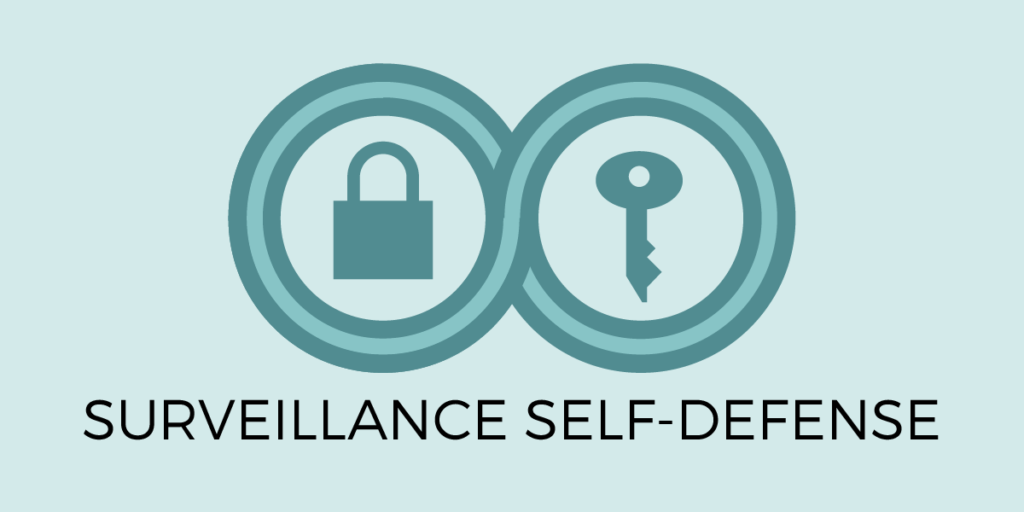
Rory Peck Trust
The Rory Peck Trust Digital Security Guide for freelance journalists aims to assist the process of making informed decisions about digital security and protecting one’s self against attacks.
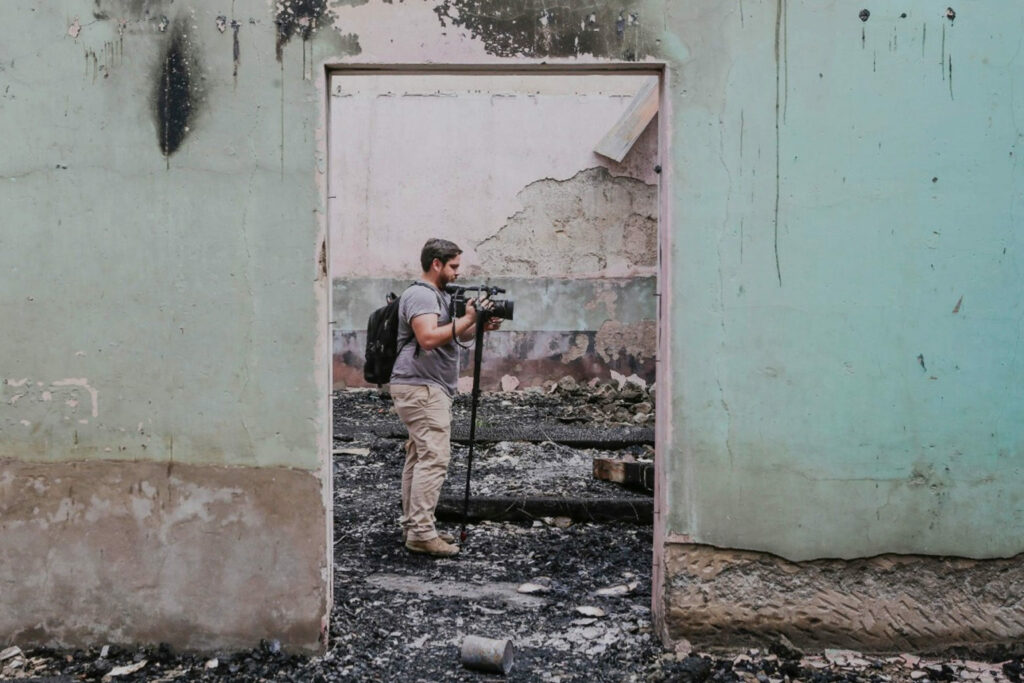
Tactical Technology Collective
Within the blurred lines between corporations and governments; and the elevated threats against the work of human rights defenders in many countries; these profiles take a different dimension beyond corporate interests, and can become at times, the center of the threat model. Under this project, the Data and Activism team aims to trace how this process happens, raise awareness on its different implications; and – where possible – explore protection strategies and creative responses.

Data Detox Kit
This Data Detox Kit article will introduce you to the third wheel in your dating life and give you tips on how to share less and keep more secrets.
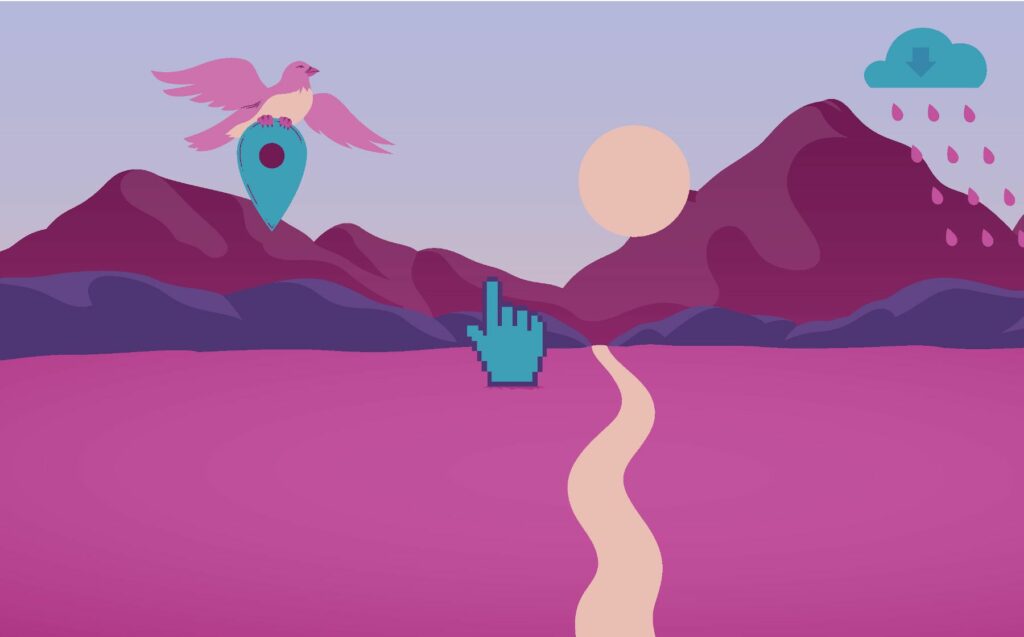
Heart Mob by Hollaback
This guide will walk you through the immediate steps you need to take to feel safe and give you the information you need to make informed decisions online.
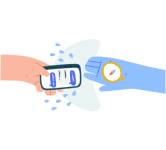
HACK*BLOSSOM
This guide walks you through common areas of digital life such as web browsing, private data, and smartphones to show you different ways that you can implement as much or little security as you’re comfortable with.
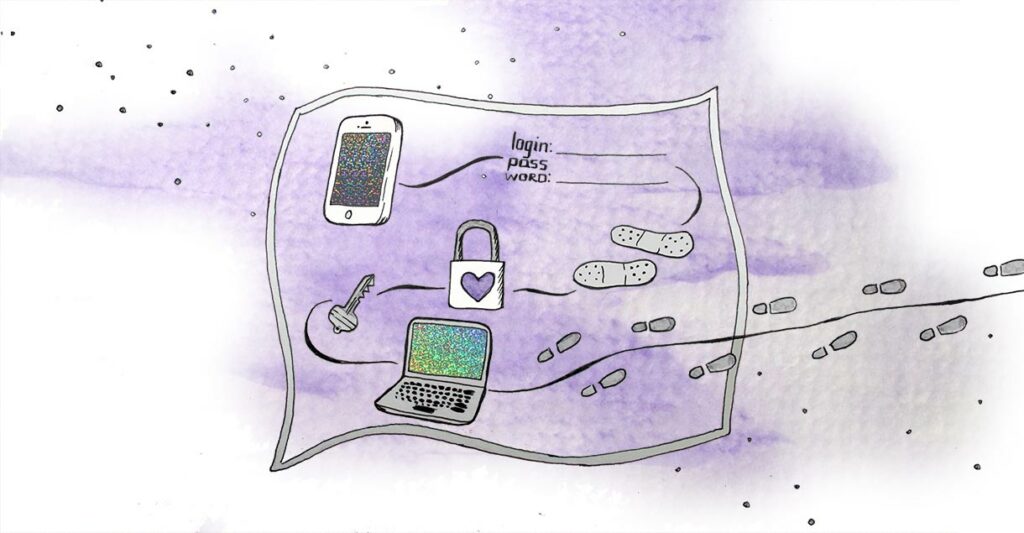
HACK*BLOSSOM
Why Cybersecurity? Domestic violence isn’t always physical. Many intimate partners exert control using the technologies we rely on everyday. Being intimidated by constant phone-calls, stalked by location-sharing apps, humiliated on social media, forced to share sensitive texts and passwords: each of these experiences is a violation of privacy that affects your freedom to make decisions about your life. Being deprived of your autonomy is no less painful when it’s digital. DIY Cybersecurity asserts your privacy online. When you’re threatened by your partner, you can always reach out to a domestic violence professional. But whenever you need to protect yourself online, you’re not alone. Our Threat Scenarios explore, in-depth, how to resist a controlling partner. Each guide is accessible and empathetic: you’re not obliged to follow any of our suggestions if you don’t feel they’re right for you.
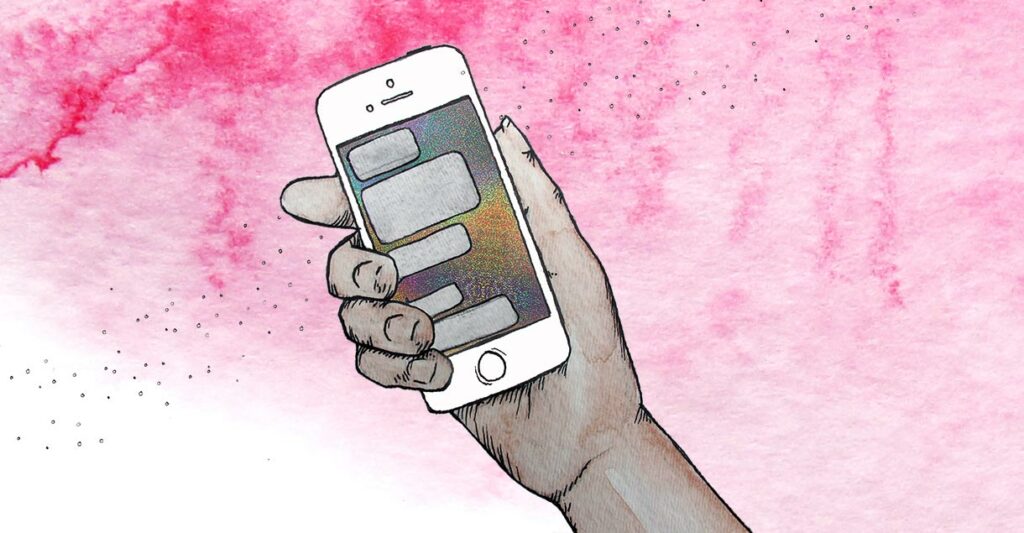
Institute for War and Peace Reporting
Cyberwomen is a digital security curriculum with a holistic and gender perspective, aimed at offering in-person learning experiences to women human right defenders and journalists working in high-risk environments. The guide is geared towards both professional trainers and persons who want to learn how to train others on their digital protection, and include gender considerations as they do so. It is made up of training modules, interactive games, recommendations for evaluating the training, as well as audio-visual and graphic materials as instructional aids. There are some recommendations about which modules to use for different learning levels, time and contexts. You can browse the guide online or download the full version from the site. The creation of CyberWomen was a collaborative process between many devoted people and partner organizations.
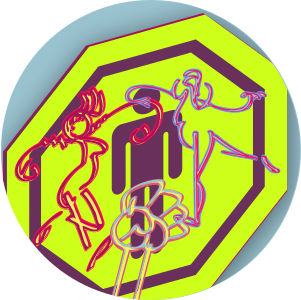
Committee to Protect Journalists
This guide details what journalists need to know in a new and changing world. It is aimed at local and international journalists of varied levels of experience. The guide outlines basic preparedness for new journalists taking on their first assignments around the world, offers refresher information for mid-career journalists returning to the field, and provides advice on complex issues such as digital security and threat assessment for journalists of all experience levels.
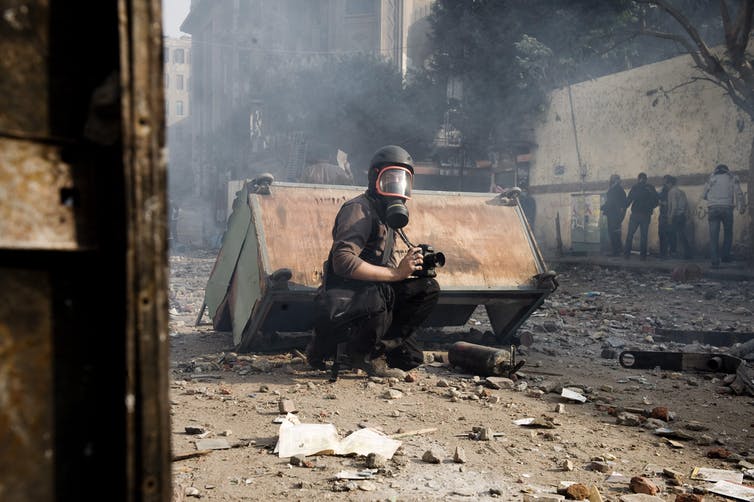
Totem
Totem helps security trainers extend the learning experience from a few days of face-to-face, offline training into a continuous and on-going, interactive learning experience. For example, trainers can curate courses on basic tools and concepts that learners take in preparation of a face-to-face, classroom training. Totem can also be used after a face-to-face training has concluded, so learners can continue to learn advanced concepts and stay in touch with trainers using secure communication methods provided via the platform.
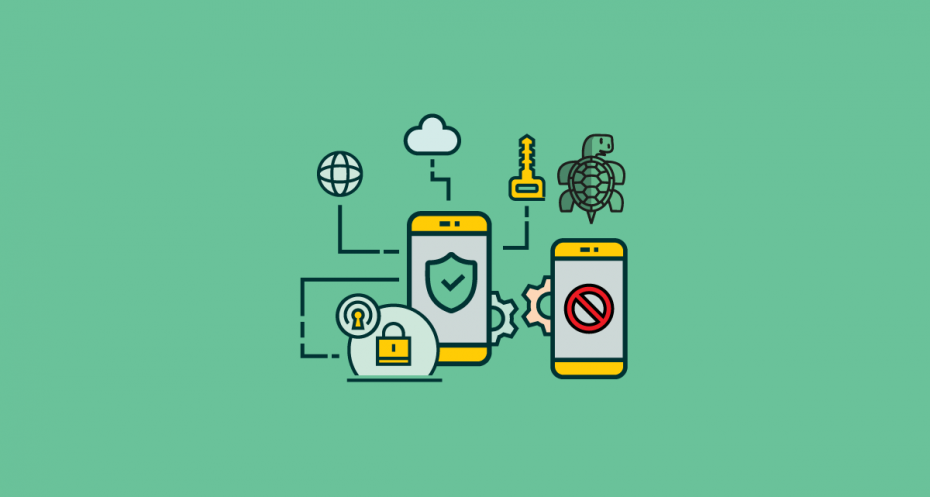
Justice & Peace
Co-manage accounts with colleagues and friends by safely sharing passwords, notes and other pieces of information using a password manager: LastPass.
Justice & Peace
Want to change your KeePassXC Master Password? Easy. Follow these simple steps.
Justice & Peace
This video tutorial shows you how to install and use KeePassXC, a free open-source software password manager.
Justice & Peace
Justice & Peace
Add contributors to your website and control their privileges without a password changing hands.
Justice & Peace
Make the life of potential hackers a hell, add an extra layer of security for your main social media accounts by setting up a second step of ID verification on top of your password.
Justice & Peace
Learn to co-manage your Twitter and Facebook accounts with your teammates without passwords ever changing hands.
Justice & Peace
A step-by-step guide on how to activate 2-Factor Authentication for your Gmail account.
Justice & Peace
Veracrypt is a free, open source software that is easy to use. It will allow you to encrypt and protect files or even hide them from prying eyes. Follow the simple steps in this tutorial to learn how to use Veracypt in your daily work.
Justice & Peace
Learn to passphrase-protect access and manage sessions in a PC or a workstation running an edition of Windows 10.
Electronic Frontier Foundation
Surveillance Self-Defence is the Electronic Frontier Foundation’s guide to defending yourself and your friends from surveillance by using secure technology and developing careful practices.
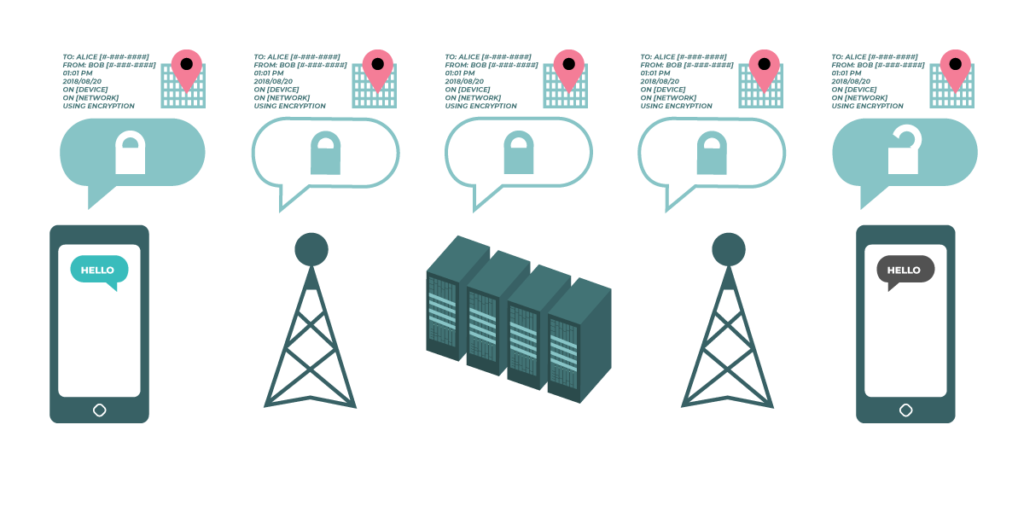
Frontline Defenders
A simple overview to help you choose the right tool for your specific group chat and conferencing needs.

Justice & Peace
Jitsi Meet is secure and free alternative to Skype that does not require any downloads. All you need is your browser. It does not ask you to register, does not keep any records of the conversation and offers a couple of cool features, such us password-protection, screen share and more.
Justice & Peace
How to use OpenVPN in Windows to circumvent censorship and protect your identity online.
Justice & Peace
Tor is free browser and a network of volunteers (nodes) all around the world that will help you defend against some forms of Internet surveillance that threatens personal freedom and privacy.
Security First
Umbrella is digital and physical security for people at risk on your Android phone. The Umbrella app brings together tools and advice on how to operate securely. Simple, practical advice from sending a secure email to secure travel.

Protection International
This publication is intended to serve as a tool for people who are interested in facilitating training processes to develop protection capacities in human rights defenders (HRDs), their organisations and communities.
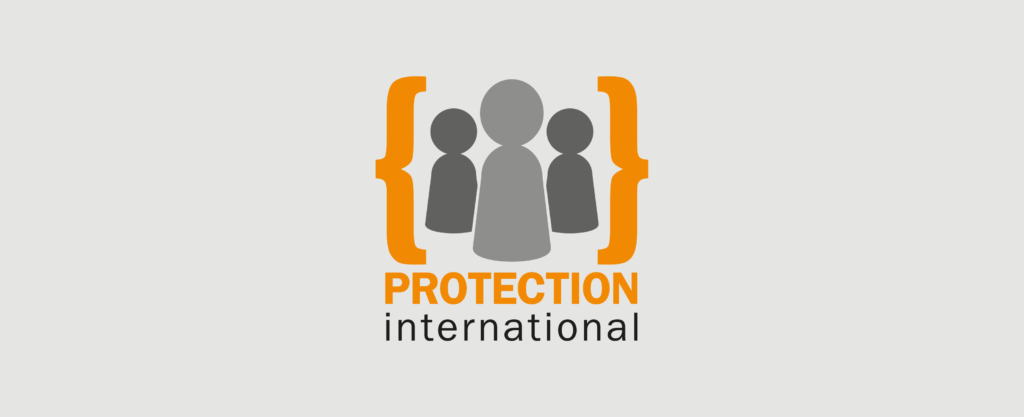
The Global Interagency Security Forum
This guide (2017) aims to be a simple, easy-to-use security resource to help smaller NGOs demystify security risk management. By setting out the elements of a basic security risk management framework, this guide aims to support NGOs in translating their duty of care obligations into key processes and actions that will not only enhance their national and international staff security but also improve their organisation’s reputation and credibility.
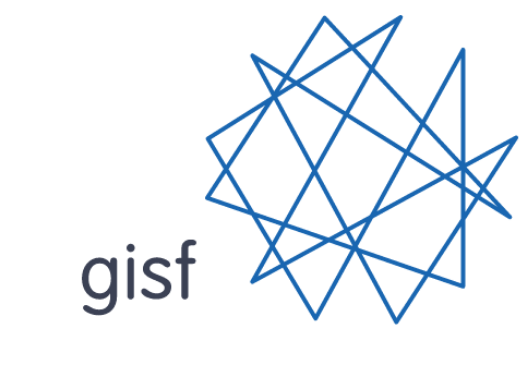
Frontline Defenders
The Front Line Defenders Workbook on Security takes you through the steps to producing a security plan – for yourself and for your organisation (for those HRDs who are working in organisations). It follows a systematic approach for assessing your security situation and developing risk and vulnerability reduction strategies and tactics.

Centre of Applied Human Rights, University of York
The most valuable kinds of security training support defenders in: increasing rights awareness; conducting context analysis, stakeholder analysis, and risk assessment; developing security management practices; sharing experiences; building networks of support; reflecting on everyday practices related to security; and adopting a multidimensional understanding of security that includes mental and emotional wellbeing.
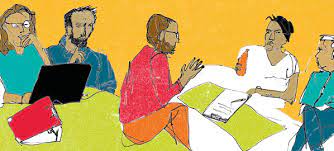
Protection International
This publication aims to illustrate PI’s work accompanying groups that defend human rights in their territories. It also incorporates a gender perspective, the use of communication for threat confrontation, and the psychosocial approach as the basis of our method and methodologies.
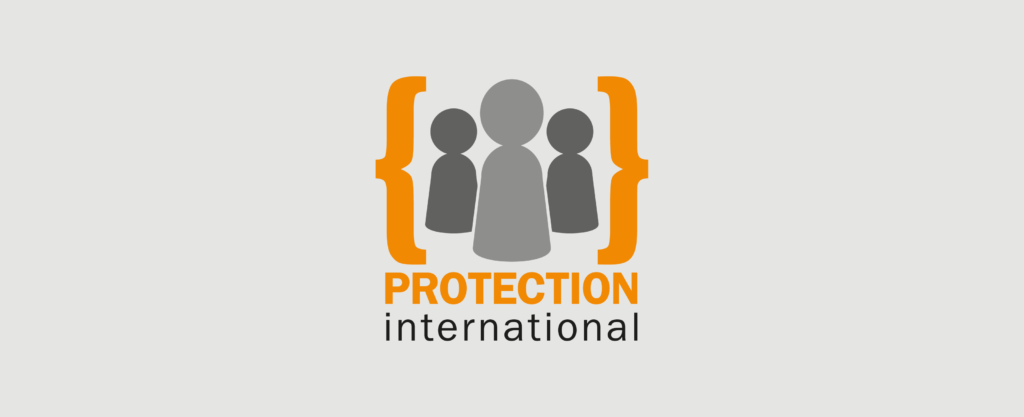
Protection International
This manual is a tool to help human rights defenders develop their own personal security plans and protection mechanisms. It draws on Protection International’s 25 years of experience, and includes a step-by-step plan to help human rights defenders assess threats, and protect against vulnerabilities.
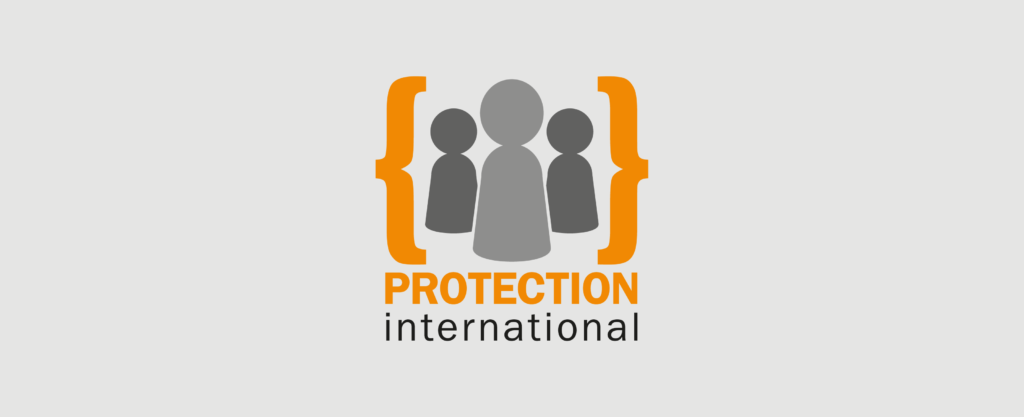
FreedomLab
The Safety and Security in Human Rights Work training will equip you with the knowledge and skills to protect yourself, your team, your information, and the people whose rights you are trying to uphold from external threats. The modules include key concepts related to security culture, personal security, psychological well-being, and digital security.
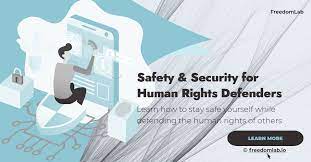
IREX
The SAFE (Securing Access to Free Expression) Initiative is IREX’s flagship effort to enable media practitioners and social communicators to work as safely as possible in closed and closing spaces. SAFE serves to equip media practitioners and social communicators with the means to resiliently continue their important work and manage—as well as mitigate—the risks and threats they face in their day-to-day work uncovering injustices, reporting on corruption, and holding authorities accountable. The purpose of the SAFE Basic Training Master Curriculum is to share the SAFE training methodology for use by media practitioners, social communicators, civil society organizations, and non-governmental organizations, as well as others around the world working on journalist safety issues. To achieve this, SAFE harnessed the knowledge from the regional training teams and their nearly five years of experience. Based on this knowledge, SAFE compiled this Basic Training Master Curriculum to deliver security trainings around the world.
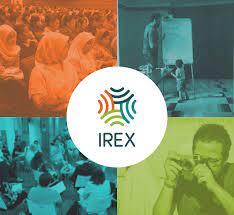
Frontline Defenders
Ideas and tips for human rights defenders for working during COVID-19.
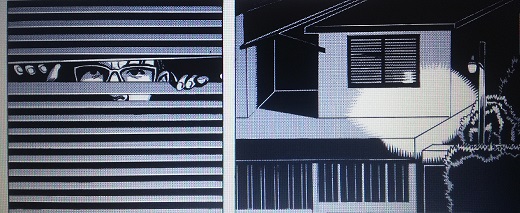
Tactical Technology Collective
The Trainers’ Manual was created partially as a companion to Tactical Technology Collective’s ‘Holistic Security Manual for Human Rights Defenders’, and partially to reflect further learnings and best practices identified through Tactical Tech’s facilitation of dialogues and engagements between experts and trainers in overall protection, digital security, and psychosocial well-being for human rights defenders between 2013 and 2015.
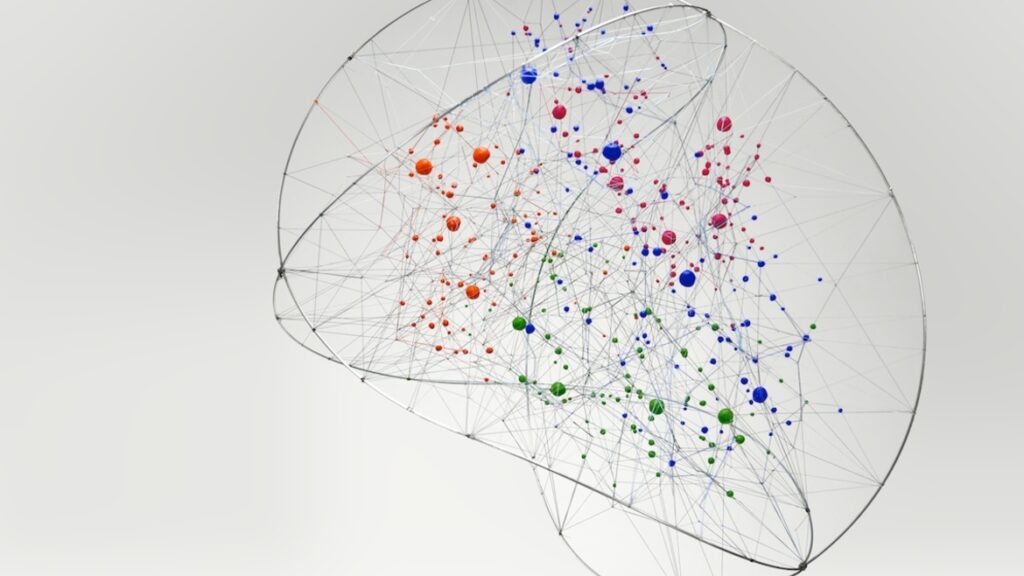
Huridocs
This webinar on holistic security contains presentations by various trainers explaining how to incorporate measures relating to digital, physical security and well-being within this work.
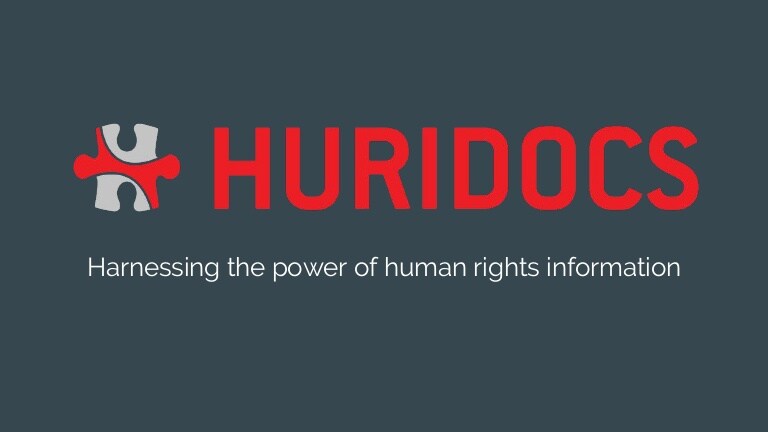
Rory Peck Trust
Journalists are constantly exposed to stress and pressures that affect their mental health and wellbeing, which in turn impacts their ability to work. In recognition of this, the Therapy Fund covers the cost of treatment for those who would benefit from professional psychological support.
The aim is to provide support to freelance journalists so they are able to resume their important work.

Justice & Peace
Part of a series of videos created by Justice & Peace Netherlands, together with Tai Chi and Bodywork trainer, Leo Mosselman for human rights defenders around the world, and anyone else that would like to refocus and re-energise.
Justice & Peace
Part of a series of videos created by Justice & Peace Netherlands, together with Tai Chi and Bodywork trainer, Leo Mosselman for human rights defenders around the world, and anyone else that would like to refocus and re-energise.
Justice & Peace
Part of a series of videos created by Justice & Peace Netherlands, together with Tai Chi and Bodywork trainer, Leo Mosselman for human rights defenders around the world, and anyone else that would like to refocus and re-energise.
Justice & Peace
Part of a series of videos created by Justice & Peace Netherlands, together with Tai Chi and Bodywork trainer, Leo Mosselman for human rights defenders around the world, and anyone else that would like to refocus and re-energise.
Global Investigative Journalism Network
Global Investigative Journalism Network has created, with the help of experts and journalists, a comprehensive guide on documenting war crimes. The guide focuses on legal aspects of war, environmental crimes, attacks on civilians, genocide, archiving evidence, documentation, physical and digital security best practicies, self-care, and more.

Human Rights Resilience Project
The website is a collaborative space run by the Human Rights Resilience Project to bring together resources, research, and tools to improve resilience and well-being within the human rights community. The crucial work undertaken by advocates to investigate abuse and advocate for justice can often expose them to traumatic material, threats, stressors, and violence that can affect well-being. The website aims to meet the urgent need for advocates to have improved access to tailored education, training and research materials.
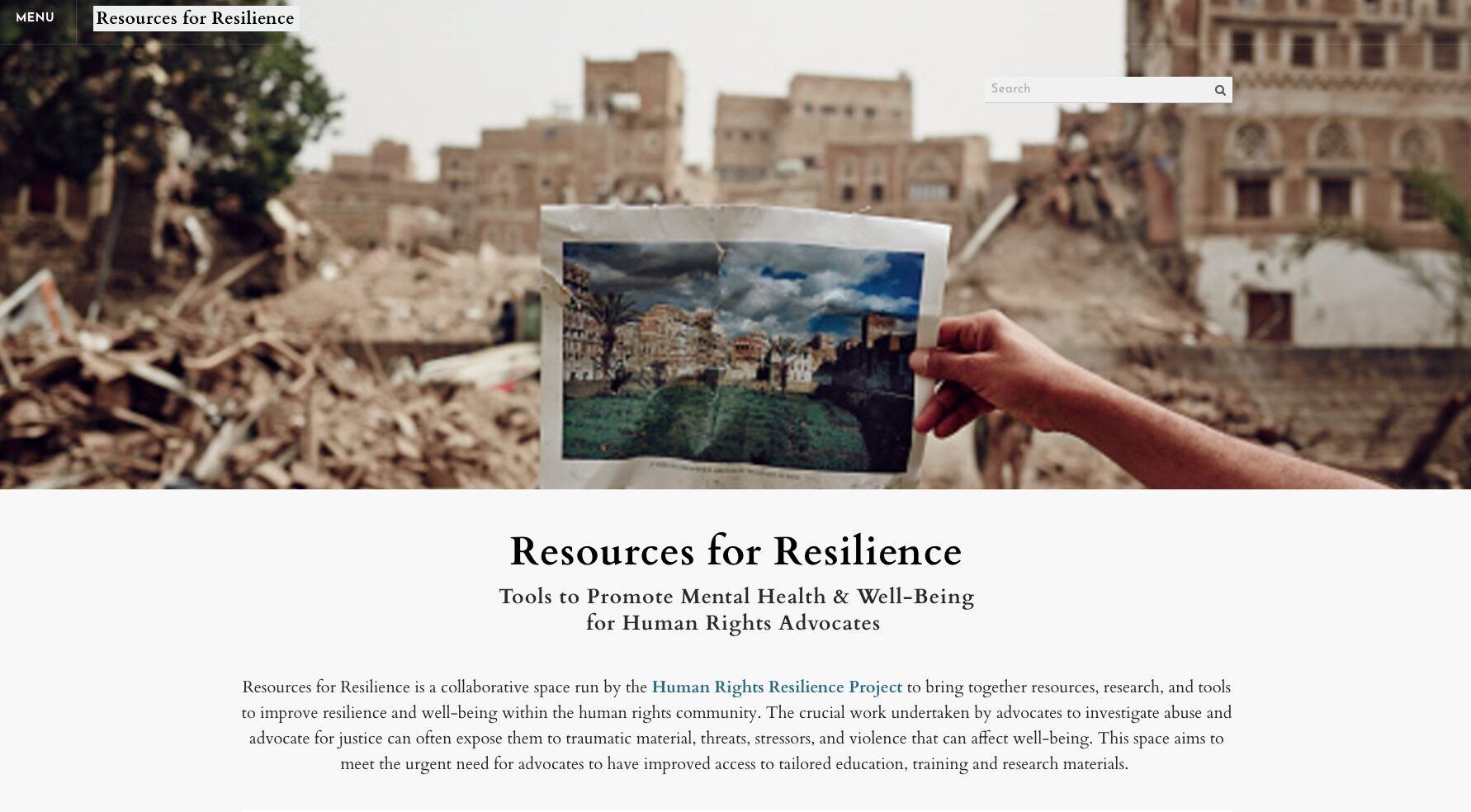
The Global Interagency Security Forum
The guide aims to support aid agencies in preventing, being prepared for and responding to incidents of sexual violence against their staff. It is intended as a good practice guide to help strengthen existing processes and support organisations as they set up their own protocols. It is aimed at anyone with a responsibility for staff care, safety and security, as well as anyone involved in processes aimed at preventing or responding to incidents of sexual violence against staff, such as security focal points, HR staff, project and programmes staff, and first responders to incidents of sexual violence within an aid organisation.
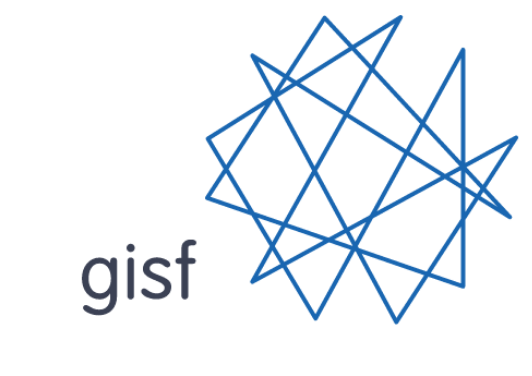
Jane Barry and Jelena Dordevic Urgent Action Fund for Women's Human Rights
This book brings the experiences of more than 100 activists from around the world, what they fear what they hope for, their exhaustion, grief and pleasure, pain and loss and wicked black humour, spirituality, funding crunches, backbiting and burnout. Self-worth, desire, selfishness, and selflessness. The book uncovers the simple and complex strategies that activists use to stay well and safe and concludes with a call for a revolution within activism that will ensure that we can sustain ourselves and our movements.
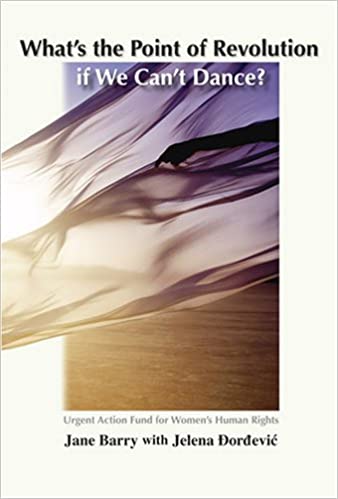
Heart Mob by Hollaback
A brief self-care guide for those experiencing harassment.
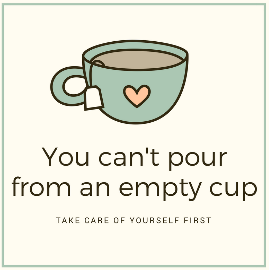
Amnesty International
An article that focuses on the self-care and well-being of activists.

New Tactics in Human Rights
This online dialogue addressed the risks of human rights work: compassion fatigue, burnout, secondary and vicarious trauma, and stress.

Miriam Zoila Pérez, ColorLines
This article refers to four critical resources for “when the trauma won’t stop,” which provide practical advice for helping you disengage, ensuring self-care, and ways to protect yourself in spaces with “unaware people” .

Ashoka and The Robert Wood Johnson Foundation
This Social Innovation Mapping Exercise examines the ‘barriers” that social enterprises face when trying to incorporate wellness into how their organizations are run, and the “design principles” that enterprises have adopted to counter those barriers.
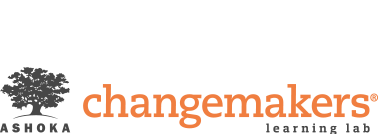
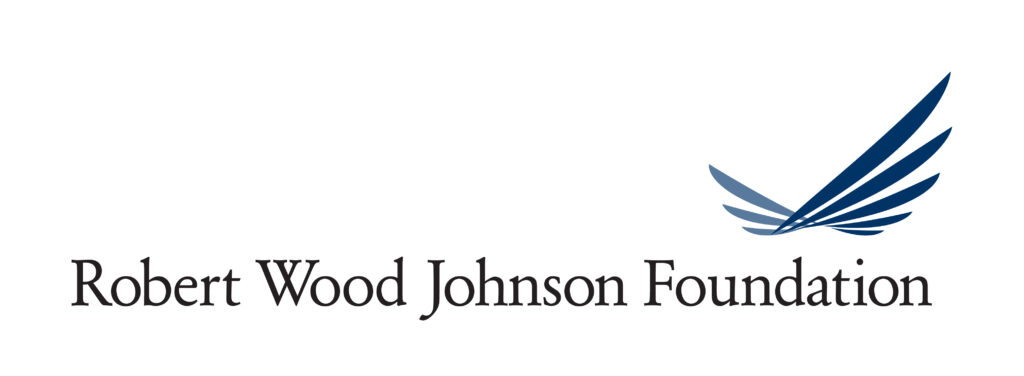
Frontline Defenders
The Frontline Defenders website has a whole section on health and stress management. This workbook on managing threats to security has some practical tips on how to deal with challenges to well-being including stress.
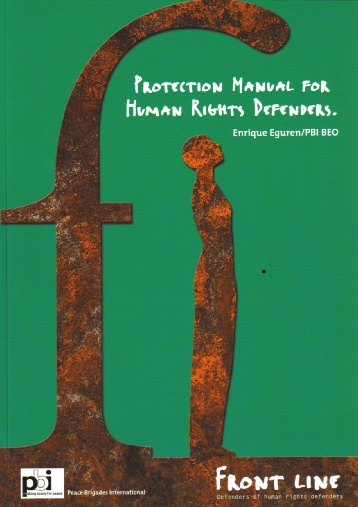
Capacitar
This toolkit provides a range of simple wellness practices which are useful in situations of stress and emergency.
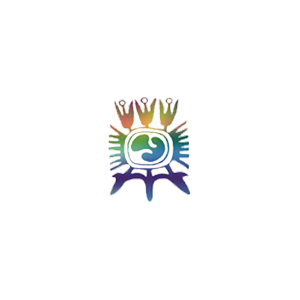
Jane Barry
Dealing with all aspects of an activist’s work and life, from health and personal networks to secure working spaces, this manual shows how various stakeholders in human rights practice can organize Integrated Security Workshops.
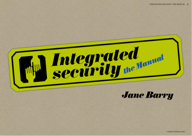
UN Office of the High Commissioner for Human Rights
This manual describes how a trauma-based approach can be adopted when conducting human rights research. It also contains a checklist for self-care during, before and after conducting interviews with trauma survivors and includes a chapter on self-care for HR officers, which defines vicarious trauma, burnout, and stress management and includes tips to manage them.
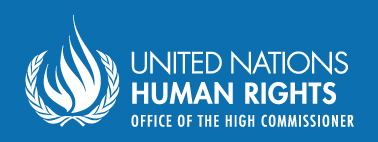
Urgent Action Fund for Women's Human Rights
This document provides insights to help defenders and their organizations reflect internally, as well as analyze their practices and their models for defending rights and their activism. It contains tools, exercises and practices that creates space for and spurs reflections on personal and collective well-being and power relationships within social justice and activism work.

Move to End Violence
This online 21-day challenge by Move to End Violence can be taken by anyone looking to incorporate self-care practices into their everyday routine. Its daily prompts are intended to increase awareness around one’s self-care habits, and to increase sustainability and mindfulness of those practices. This 21-day challenge starts the first Tuesday of every month.
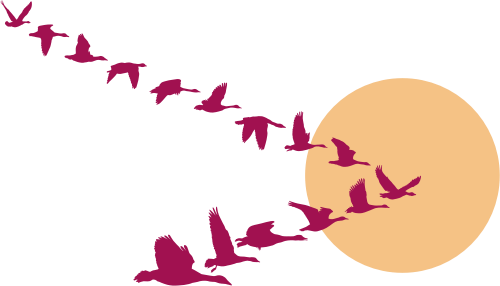
Tactical Technology Collective
This manual intends to, as described by the authors, “guide a process of establishing or improving security strategies for individuals, collectives or organizations”. Tactical Tech was the first organization to conceive of holistic security as “well-being in action,” and this guide includes a focus on health and well-being, in understanding security threats and adopting mechanisms to cope with them.

Justice Teams Network
This toolkit, created by the Black Lives Matter Healing Justice Working Group, is a resource for those engaged in direct action to center healing justice practices.
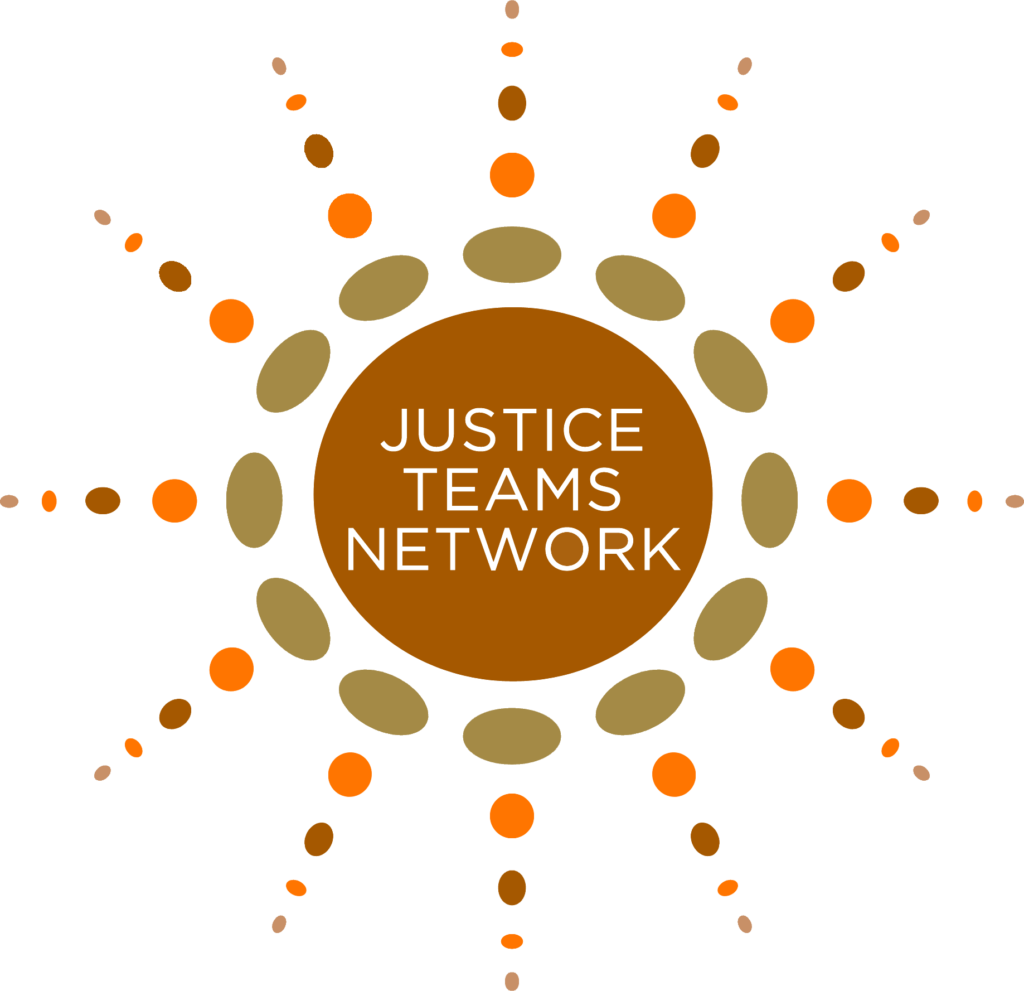
Columbia Human Rights Institute
This webinar discussion navigates mental health concerns during COVID-19, and strategies for individual, organizational, and movement-wide wellbeing; with Yvette Alberdingk-Thijm (WITNESS), Yara Sallam (Egyptian Feminist & Human Rights Advocate); Douglas Mawadri (Associates for Health Rights Uganda), Margaret Satterthwaite (NYU); moderated by Anjli Parrin (Columbia).

Defend Defenders
After declaring June 2020 the month of HRD mental well-being, DefendDefenders highlights the organisation’s work regarding well-being, and shares the knowledge, skills, and experiences of HRDs through profiles and testimonies, videos and tips, Zoom sessions and public webinars on HRD well-being.
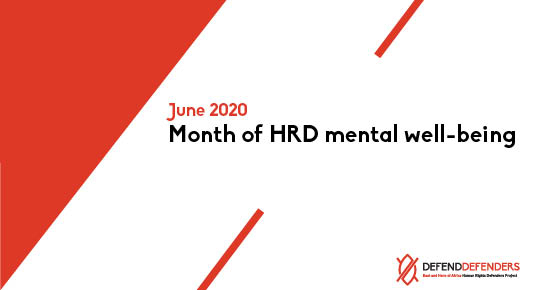
Global Investigative Journalism Network
Global Investigative Journalism Network has created, with the help of experts and journalists, a comprehensive guide on documenting war crimes. The guide focuses on legal aspects of war, environmental crimes, attacks on civilians, genocide, archiving evidence, documentation, physical and digital security best practicies, self-care, and more.

The toolkit, by CSOLifeline, is a practical resource that emphasizes that advocacy is possible even in restrictive contexts. The toolkit places the planning process within the context of risk assessment and mitigation, which is essential in these environments.

FreedomLab
The Human Rights Monitoring Training is designed to teach you the basics of how to uncover human rights violations, advocate for justice and make a positive impact in your environment in a structured, accurate and reliable manner.
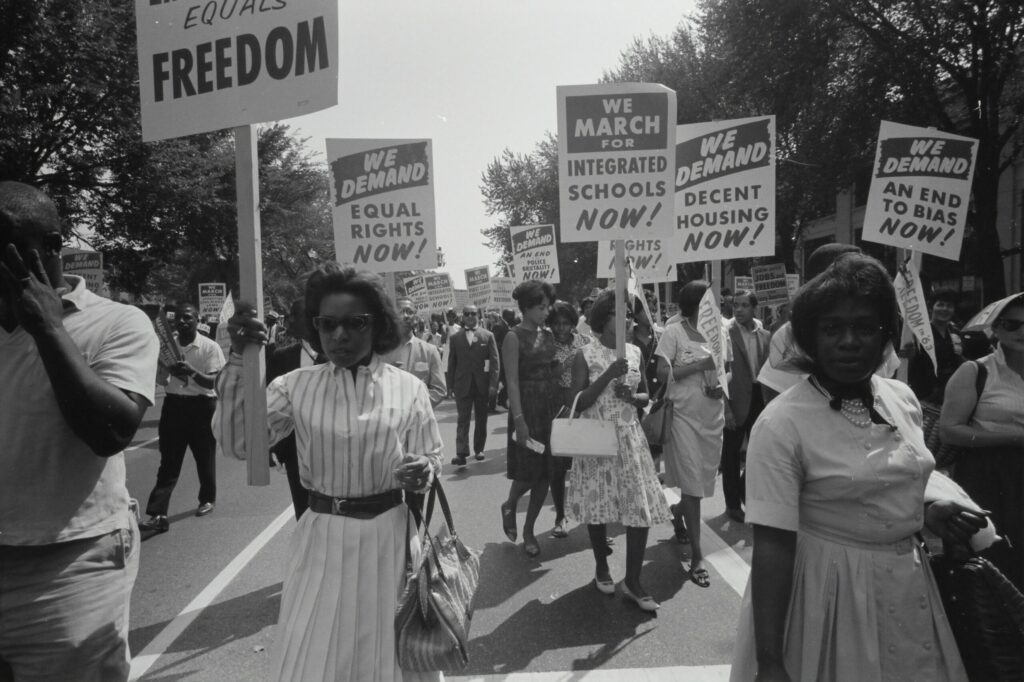
Pathfinder International
This tool helps a team take the first step in developing an advocacy initiative and selecting an issue for advocacy.
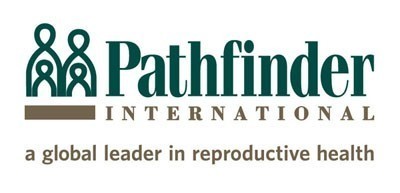
Pathfinder International
This tool helps a team understand the environment they are working in and the key factors they need to consider as they develop their initiative.
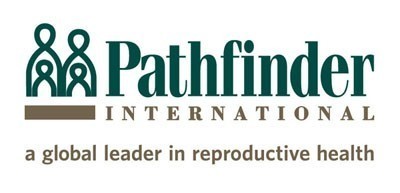
Universal Periodic Review
A template for effective NGO advocacy.
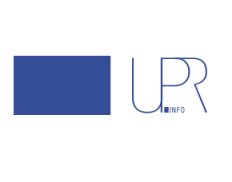
Ger Roebeling, Jan de Vries of MDF Training and Consultancy
This manual aims to increase the advocacy skills of civil society organisations (CSOs) as well as their influence on public policies in order to contribute to social transformation. The core of the Manual is the Advocacy and Policy Influencing Cycle, which draws from the Project Management Cycle. It stresses that policy influencing should be embedded in an organisation’s theory of change (ToC).
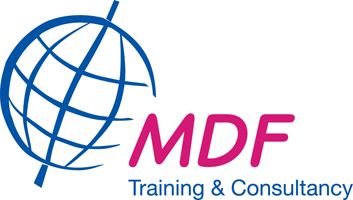
Robert F Kennedy Human Rights
Council of Europe
Ludovic Trarieux
UCONN University of Connecticut
The May 18 Memorial Foundation
To promote the spirit of the May 18 Democratization Movement, in which the people of Gwangju resisted brutal military forces for the sake of democracy and human rights in 1980, the May 18 Memorial Foundation recognizes the exemplary efforts of individuals and organizations aspiring to the restoration of justice and human rights in their respective countries through the Gwangju Prize for Human Rights Prize. Since 2000, the Foundation has been bestowing the ‘Gwangju Prize for Human Rights’ to individuals, groups and institutions in Korea and abroad that have contributed in promoting and advancing human rights, democracy and peace in their work. The prize is awarded by the citizens of Gwangju in the spirit of solidarity and gratitude to those who have helped them in their struggle for democratization and their search for truth.
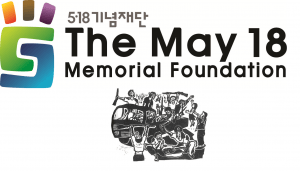
the Dutch government
The Human Rights Tulip is an annual award offered to organizations and individuals who promote human rights in a innovative and peaceful way.

Rafto Prize
The Rafto Prize is offered annually to human rights defenders. This memorial award is meant to bring to light human rights violations through the recognition of the efforts made by HRDs globally.
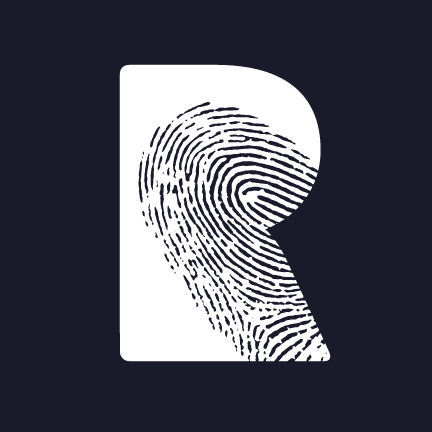
Martin Ennals Award for Human Rights Defenders
The Martin Ennals Award is an annual prize which aims to provide protection and support for HRDs at risk. The selection of the Finalists and the Laureate is done by a jury composed of ten human rights NGOs.
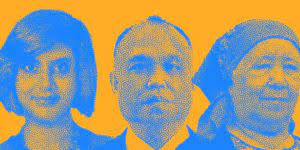
Pulitzer Center
Pulitzer Center is providing rolling grants for journalists around the world who report on issues related to gender equality. The application requires a project description, preliminary budget, and a compelling distribution plan. Average size of the grant is $5000.

The International Women's Media Fund
The fund aims to support journalist’s and journalistic opportunities led by women and non-binary people. The amount of the grant depends on the project. Applications may take up to 8 week to process.

Global Investigative Journalism Network
Global Investigative Journalism Network has created, with the help of experts and journalists, a comprehensive guide on documenting war crimes. The guide focuses on legal aspects of war, environmental crimes, attacks on civilians, genocide, archiving evidence, documentation, physical and digital security best practicies, self-care, and more.

The toolkit, by CSOLifeline, is a practical resource that emphasizes that advocacy is possible even in restrictive contexts. The toolkit places the planning process within the context of risk assessment and mitigation, which is essential in these environments.

The Centre for Investigative Journalism
Investigative Practice was a series of experimental seminars developed by The Centre for Investigative Journalism especially for the 2018 Logan Symposium: Conspiracy. Over the course of the series invited guests and attendees were given the opportunity to learn the tools, tactics and strategies of traditional and emergent investigations; from some of the world’s foremost journalists, thinkers and doers.
Out of these seminars and discussions a summary document was created which you can find below.
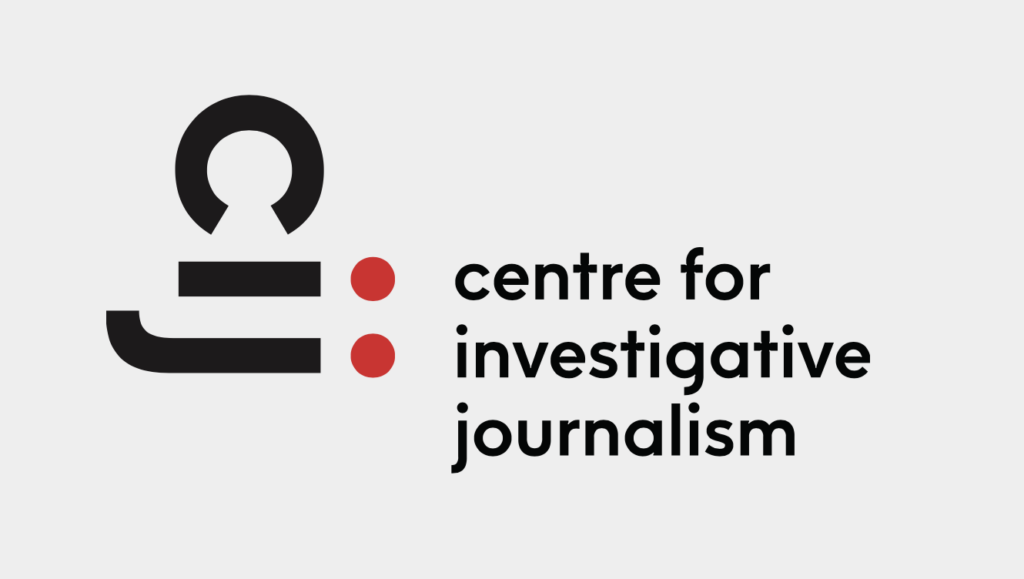
Public Media Alliance
This toolkit was developed by the Public Media Alliance to ensure that broadcast journalists in Sub-Saharan Africa feel empowered by new technology and use it to continue to deliver powerful reporting that drives change. Although it is aimed at broadcasting journalists in Sub-Saharan Africa, it can also serve as an useful resource for any media worker interested in blending investigative journalism with digital journalism.

The toolkit, by CSOLifeline, is a practical resource that emphasizes that advocacy is possible even in restrictive contexts. The toolkit places the planning process within the context of risk assessment and mitigation, which is essential in these environments.

Pulitzer Center
Pulitzer Center is providing rolling grants for journalists around the world who report on issues related to gender equality. The application requires a project description, preliminary budget, and a compelling distribution plan. Average size of the grant is $5000.

The International Women's Media Fund
The fund aims to support journalist’s and journalistic opportunities led by women and non-binary people. The amount of the grant depends on the project. Applications may take up to 8 week to process.

The toolkit, by CSOLifeline, is a practical resource that emphasizes that advocacy is possible even in restrictive contexts. The toolkit places the planning process within the context of risk assessment and mitigation, which is essential in these environments.

Global Investigative Journalism Network
Global Investigative Journalism Network has created, with the help of experts and journalists, a comprehensive guide on documenting war crimes. The guide focuses on legal aspects of war, environmental crimes, attacks on civilians, genocide, archiving evidence, documentation, physical and digital security best practicies, self-care, and more.

The toolkit, by CSOLifeline, is a practical resource that emphasizes that advocacy is possible even in restrictive contexts. The toolkit places the planning process within the context of risk assessment and mitigation, which is essential in these environments.


